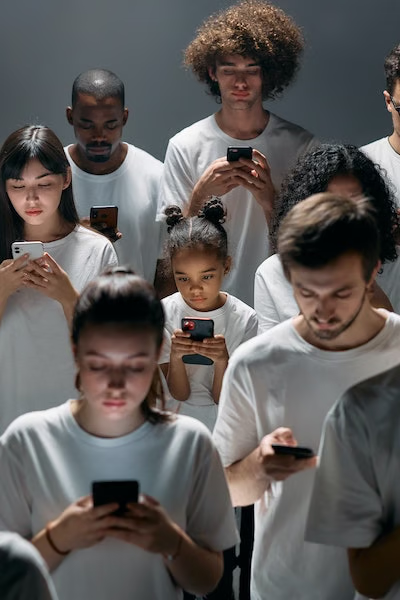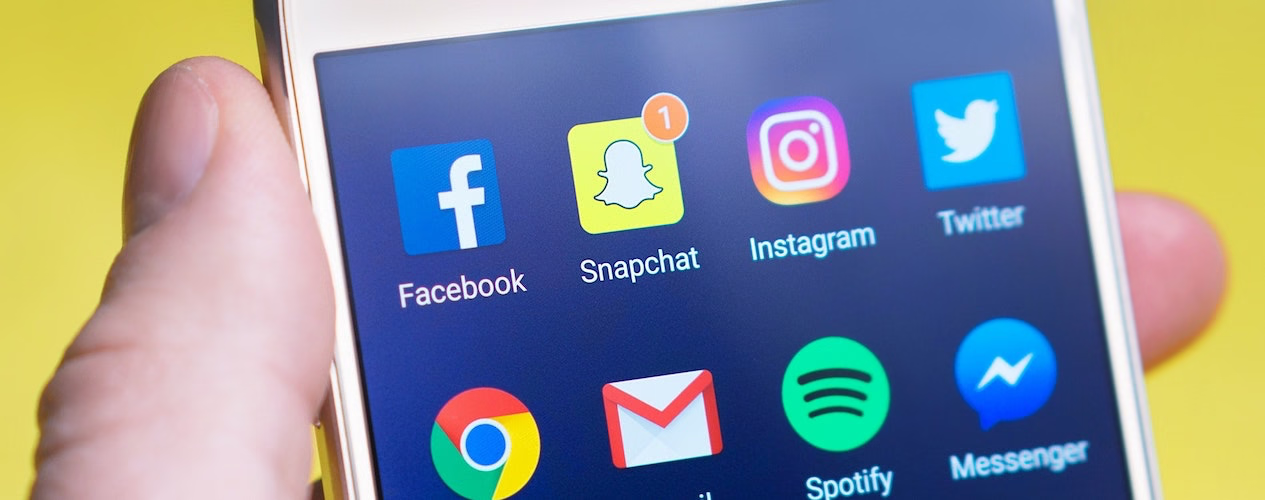Social Media Culture
Social media has had a significant impact on social relations. On the one hand, platforms like Facebook, Instagram, and Twitter have made it easier for people to connect and stay in touch with each other, regardless of distance or time zones.
This has allowed people to maintain relationships that may not have been possible. On the other hand, however, social media can also create unrealistic expectations and feelings of FOMO, leading to anxiety and stress.
Social Media and Hookup culture
Dating culture has also been affected by dating apps like Tinder and Bumble. These platforms have made finding potential partners easier based on location and shared interests. However, while this can be a valuable tool for people looking for love or companionship, it can also lead to superficial connections and a focus on physical appearance over deeper qualities.
This can create a culture of 'swiping' and quick hook-ups rather than meaningful relationships. Social media can also play a role in the breakdown of relationships. Re-reconnecting with past partners or engaging in emotional infidelity online is easier than ever.
This can lead to trust issues and jealousy, damaging existing relationships.
In summary, social media has changed how people form and manage relationships. While it has made connecting and finding potential partners easier, it has also created new challenges and pressures that can impact relationships and dating culture. Therefore, it is essential for individuals to be aware of these effects and to use social media in a way that promotes healthy relationships and connections. However you can read on what Vogue's writer: Karley Sciortino has to say about the benefits of casual hookups.

Social Media Influencer Culture
The rise of social media has given birth to a new type of celebrity: The social media influencer. Influencers are individuals who have amassed a large following on social media platforms and use their online presence to promote products, services, or ideas. As a result, influencer culture has changed how people observe and pursue success.
The desire for online fame can lead to unhealthy behaviours, such as prioritizing social media engagement over personal relationships and well-being. Read this Oberlo blog article on top ways influencers make money.

Cyberbullying on Social Media
Social media has become a significant part of our regular routines, but it has also brought about several adverse effects that have impacted our culture.
One of the utmost concerns is the rise of cyberbullying. Social media platforms have made it easier for bullies to target their victims, leading to more significant cases of online harassment and abuse.
This can, by and large, influence the mental well-being of individuals referred to, inciting anxiety, unhappiness, and, surprisingly, implosion.

Social Media Addiction
Another issue associated with social media addiction. Social media platforms are designed to be engaging, which can lead to excessive use and addiction. It can also lead to social isolation, as individuals become more focused on online interactions than real-life relationships.

Social Media increase's the spread of Fake News
The spread of misinformation is also a significant concern associated with social media. Social media platforms can quickly spread false information, leading to confusion, mistrust, and even harm to individuals or society. This can include spreading fake news, conspiracy theories, and propaganda, leading to a breakdown of trust in institutions and trustworthy governments and even social unrest.
Read on how Canada's government plans to tacle misinformation.
In summary, social media has brought about several adverse effects impacting our culture. Cyberbullying, addiction, and spreading misinformation are significant concerns associated with using social media platforms. Acknowledging these issues and taking steps to mitigate their impact on individuals and society is essential.

Conclusion
The internet has brought many positive changes to our society, including more efficient communication mediums, easier access to information, and new business opportunities. Read more on how the internet affects culture.
However, it has also brought some adverse effects that cannot be ignored. Cyberbullying, addiction, the spread of misinformation, and the pressure to maintain an online presence are some challenges in the digital age.
Cyberbullying, for example, has become a severe issue, particularly among young people. In addition, we see the proliferation of troll culture within the online forum space, polluting users' web experience. 'Trolls' is a name given to an anonymous user that posts defamatory comments. Read more about what are internet trolls in this article.
Furthermore, social media and other online platforms have placed disincentives on bullies when they harass and intimidate their victims online.
These behaviours can lead to the victim's mental health problems and even suicide. Internet addiction is another concern, with some people becoming so dependent on digital devices that they neglect real-life relationships and responsibilities.
The spread of misinformation online has also become a significant problem. With so much information available on the internet, it can be difficult to distinguish fact from fiction.
This has led to the proliferation of conspiracy theories and false information that can have serious consequences, such as vaccine hesitancy and political polarization. Therefore, governments have the authority to establish and enforce laws and regulations to punish fake news outlets, so societies to live in more inclusive communities.
Finally, the pressure to maintain an online presence has created a culture of comparison and self-doubt. Social media platforms, in particular, can create unrealistic expectations and a fear of missing out, leading to anxiety and depression.
As a society, we must find ways to address these adverse effects of the internet while still embracing its positive contributions.
This may involve developing new policies and regulations to address cyberbullying and misinformation. Also, legitimate institutions must advocate for responsible internet use.
Finally, users must find ways to balance their online and offline lives. Ultimately, the internet has the potential to bring tremendous benefits to our culture, but we must also be mindful of its potential pitfalls.

